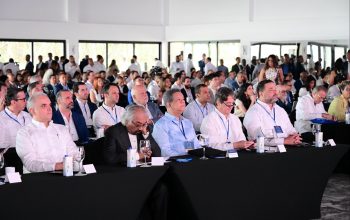news
“Automated Fraud: From the PLD Primaries to the Municipal Elections”, an article by Dr. Leonel Fernández
February 25, 2020
Dominican Republic – The suspension of the municipal elections this past February 16 has ignited deep indignation among the Dominican people. This indignation increased as a result of the initial attitude adopted by the government and the authorities of the Central Electoral Board to attempt to minimize the magnitude of what had occurred.
The occurrence of ‘sabotage’ was referenced from the official side; and from the Central Electoral Board it was argued that we were dealing with “failures of the electronic system, an error that is legally coined as an act of God.”
Not a chance. It was not sabotage, nor error, nor an act of God. For the majority of the population, what really happened in the municipal elections was a blatant crime against the Dominican democracy.
Instead of failure on behalf of the electronic system, what occurred was an automated fraud that did not materialize. More than an act of God, it was a failed attempt to thwart the automated vote. The supposed error was nothing more than a criminal plot that was ultimately unveiled.
At first, to distract from what had occurred, the authorities designed an abysmal script fit for an action film. They launched a smoke screen, which guided doubts into an effort to hold responsible those who had taken part in denouncing the events.
They could have been considered as referential witnesses, but instead they were deprived of their freedom, stripped of their fundamental rights and were even subjected to physical and psychological aggression.
After several days of uncertainty and threats, the colonel of the National Police, Ramón Antonio Guzmán Peralta, and Manuel Antonio Regalado, technical analyst of Claro, were freed.
In an unexpected twist, in line with their strategy of distraction, the government ordered the Public Ministry and the National Police to cease the acts of judicial persecution; and suddenly, those who were considered scapegoats of the mock investigation were left alone without any form of indictment, as should have happened from the beginning.
Under the influence of the protests and popular pressure, the government was compelled to realize it was a widespread outcry; it had to form an authentic investigation on the matter that would bring back confidence and credibility to the national electoral system.
THE DEATH OF THE AUTOMATED VOTE
Of course, one of the consequences of the suspension of the municipal elections was the death penalty of the automated vote. This is not because the voting system is intrinsically bad, but because the Central Electoral Board did not establish the indispensable technical measures to guarantee the integrity of the electoral process, not in the primaries on October 6th nor in this fiasco.
In January 2019, when the authorities of the electoral body summoned the political parties and proposed the use of an automated voting system, all parties unanimously welcomed the proposal.
Subsequently, the electoral authorities adopted a resolution in which they committed themselves to the implementation of a technical audit of the program and its software, its coding and the teams that would work on the system. This was considered as a pilot plan.
The problem was that the Central Electoral Board never fulfilled its resolution. Despite our numerous solicitations, no measures were implemented to accomplish the technical audit, common in all processes of automated votes to guarantee the security and integrity of the voting system.
This gets worse, since the software program that was first used in the primary elections on the 6th of October was not designed by a prestigious company, as is the norm internationally, but was instead designed by the technical personnel of the Central Electoral Board which did not have prior experience.
No single clear and convenient explanation was provided or offered as to why this audit never happened prior to the open primaries on October 6.
At one point, it was argued that there were no resources for this. Afterwards, the claim changed to lack of time.
Regardless, the truth is that it did not occur. To mitigate the eventual impact that this fault could have in the primary elections, we solicit the CEB, in due time, to carry out a manual count of the voting ballots deposited in the ballot box.
This way, a comparison between the results of the automated votes and the physical votes could be made, which would have to coincide. Had this occurred, the confidence and credibility of the automated vote would have been maintained.
But, in a headstrong and stubborn manner, the Central Electoral Board always opposed this.
It went against the physical counting of the vote, and from there arose the original sin that facilitated the electoral fraud on October 6 and further clouded the recent municipal elections.
A ROBUST SYSTEM?
Facing the formulated criticism against it, after the fraud of the open primaries, the CEB made a big effort to legitimize itself before the public. It obtained the support of the media, businesses, civic organizations and religious institutions.
In light of our solicitation to carry out a forensic audit of the program’s software and of the teams employed in the primaries, the electoral authority, after a fiasco between two companies, contracted the services of the Spanish company Alhambra Eidos.
Contrary to what is stipulated by the law, without the participation of the delegates from political parties, the company proceeded to carry out its so-called forensic audit. However, nobody truly knows what it investigated; what the methodology was; or what indicators or variables were taken into consideration.
Solely on the basis of a communiqué did it establish that the automated voting system of the CEB displayed a “level of security, performance and tolerance to faults that made it robust, reliable and quick in its execution.”
With such compelling conclusions, one must wonder: what happened with the recent municipal elections? Why did the system not perform as robust and reliably as it could? Why was it not resistant to errors? Why was its execution so slow that voting was suspended?
It is evident that the communiqué of Alhambra was complacent (at the very least). It was precisely the type of memo needed by the electoral body to try to recuperate the confidence and credibility required to mediate the electoral process with the backing of the country.
But the annoyance and anger that the Dominican people currently express is due to other reasons as well. It’s a result of the impotency of the government, the deterioration of our democratic institutions; the deception, the lies and the manipulations; the weakening of the rule of law; and the lack of respect for the Constitution.
The Dominican public has expressed its indignation these past few days over the accumulating grievances.






